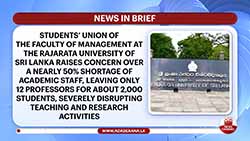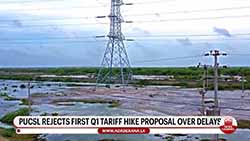Nauru allows Lankan asylum-seekers to roam freely
October 5, 2015 09:02 pm
Nauru announced Monday (Oct 5) that asylum-seekers, including those from Sri Lanka, at an Australian immigration camp on the Pacific island will no longer be locked up, saying they will instead be free to roam around the tiny nation.
The Nauru government said the Regional Processing Centre (RPC) had been converted into an “open centre”, giving its inhabitants freedom of movement.
It also promised to process within a week all outstanding refugee claims, about 600 of them, the total number of asylum seekers on the island.
“The start of detention-free processing is a landmark day for Nauru and represents an even more compassionate programme, which was always the intention of our government,” Justice Minister David Adeang said.
The Nauru RPC was set up as part of Canberra’s hardline asylum-seeker policies under which those arriving on people-smuggling boats are not held in Australian territory. Another camp is located on Papua New Guinea’s Manus Island.
Adeang said Australia was assisting the transition to an open centre, including providing more police support and suitable health care for the asylum-seekers.
Under the plan, the number of community liaison officers will be increased from 135 to 320 to help asylum-seekers, who come from countries including Iran and Sri Lanka, settle in the country of 10,000.
Refugee advocates, who allege abuses such as rape have occurred on the island, said the change was an 11th-hour move that coincided with an Australian court case this week challenging the legality of Canberra’s policy.
Daniel Webb from the Melbourne-based Human Rights Law Centre said fundamental problems with the policy remained.
“A transition to an open centre (is) an important and hard-won improvement, but letting people go for a walk does not resolve the fundamental problems caused by indefinitely warehousing them on a tiny remote island,” he said.
“The men, women and children on Nauru need a real solution, settlement in a safe place where they can rebuild their lives. Instead they’re being left languishing in an environment that is clearly unsafe for women and children.”
- AFP












